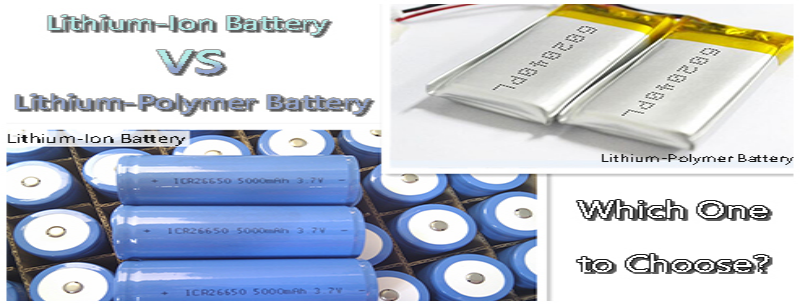
Main content:
- What is a lithium-ion battery?
- What are the pros and cons of lithium-ion batteries?
- 3. What is a lithium-polymer battery?
- 4. What are the pros and cons of lithium-polymer battery?
- How long does lithium-polymer battery last? Do lithium-polymer batteries last longer than lithium-ion?
- Which is better, lithium polymer battery vs lithium ion?
- What’s the difference between lithium-ion and lithium-polymer batteries?
- Which one to choose in different application scenarios lithium-polymer battery or lithium-ion?
There are many kinds and types of batteries available in the market having different uses and characteristics. Lithium battery is one of them, and it can also be divided into several types with different cathode materials, such as lithium polymer battery vs lithium ion.The following article emphasizes a theme of lithium polymer battery vs lithium ion. Let’s dive into the details!
1. What is a lithium-ion battery?
A lithium-ion battery or Li-ion battery is an advanced and modern type of battery having high technology. It is rechargeable and has high energy density. It does not have any memory effect and It has a low self-discharge rate as well. The cells which make up the lithium-ion battery have lithium ions, making them different from other kinds of batteries. These ions are motile and they embedding and de-embedding back and forth between the two electrodes during the charging and discharging process.
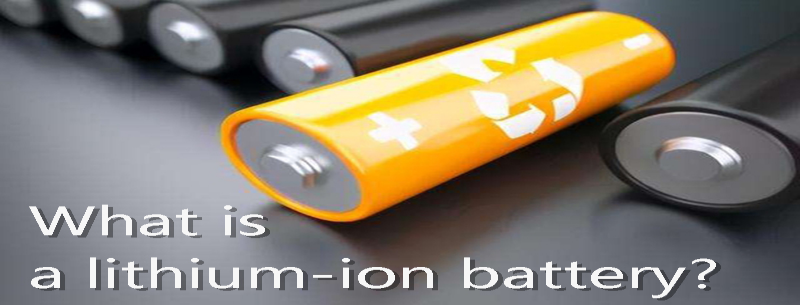
When charging, Li ions are deintercalated from the cathode, intercalated into the anode through the electrolyte, and the anode is in a lithium-rich state. The opposite is true when discharging. The cathode is made up of lithium compound while the anode is made up of carbon layer compound, generally common for graphite. Lithium batteries are mostly used in various electric devices and electric vehicles. These batteries have become quite popular in military and aerospace applications.
2. What are the pros and cons of lithium-ion batteries?
As with any kind of battery, the lithium-ion battery is not suitable for all devices. It has both advantages and disadvantages. Here are some of its pros and cons.
① Pros
The lithium-ion battery has many advantages.
High energy density
The energy density of lithium-ion battery is quite high compared to other secondary batteries and this is one of its best plus points. So they are widely used in 3C products, electric vehicles, energy storage systems and other fields. In these applications, the small size of the battery and the large capacity are required. Therefore, The lithium-ion batteries with high energy density are best suitable for such devices to operate efficiently.
Low self-discharge rate
The lithium-ion battery has a lower self-discharge rate than other rechargeable batteries, at only around 3.5% per month. When the lithium battery is stored in the non-use state, there is almost no chemical reaction inside it and it is quite stable. This attribute allows it to be superior than other rechargeable batteries.
Maintenance-free
Lithium batteries are maintenance-free, do not need to add acid regularly, and do not have the risk of bulging if they are improperly charged like lead-acid maintenance-free batteries. Lithium batteries can be truly maintenance-free, making daily use easier and more convenient. Due to the maintenance-free feature of lithium batteries, the cost of battery maintenance and management is eliminated. Therefore, compared with other batteries, lithium batteries are more cost-effective and less expensive.
Diverse specifications
There are several lithium-ion specifications available for different application scenarios, and each specification can be used for a particular product, thus, giving us a variety.
No charging effect
Lithium batteries have no memory effect and can be charged as you need. The most ideal state is shallow discharge and shallow charge within 20%-80%, which is beneficial to improve the service life of the battery.
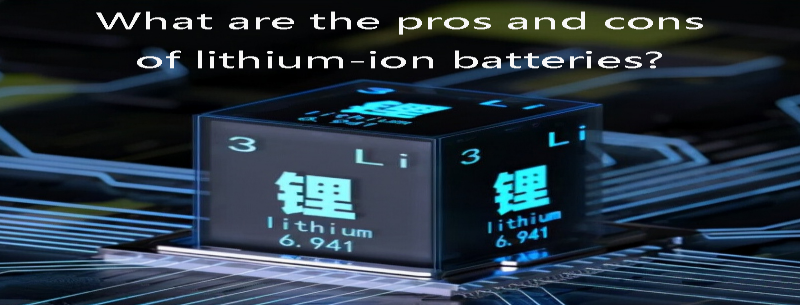
② Cons
Similarly, the lithium-ion battery also has a few disadvantages.
Requires protection
Lithium-ion batteries outperform other batteries on the market in terms of fast charging, good performance, and long battery life. However, in the actual use process, due to improper management, it is easy to be overcharged, which is prone to thermal runaway, resulting in safety accidents. Nonetheless, thermal runaway can be solved due to the presence of BMS, which can be used for thermal management and overheating protection.
Security in transportation services
Many airlines restrict the number of lithium-ion batteries you can take on board and therefore, their bulk shipment can only go through ships.
High cost
The lithium-ion battery is 40% more expensive than other kinds of batteries. This is a big disadvantage. While one of the big disadvantages of lithium-ion batteries lies in their high price tag, with the ever-increasing demand and more tech revolutions in battery technology, we will undoubtedly be seeing a more affordable lithium ion battery soon. In addition, although the upfront cost is significantly higher than that of its lead acid counterparts, the overall long-term cost is lower due to its maintenance-free and long cycle life, it is cost-effective in the long run.
3. What is a lithium-polymer battery?
Lithium ion batteries can be divided into three types of packaging: prismatic, pouch(polymer) and cylindrical battery. The lithium-polymer battery, also known as the pouch battery is a rechargeable battery. It is similar to the lithium-ion battery, however, it uses a polymer, dry, solid, and gelled electrolyte instead of the typical liquid electrolyte. The specific energy of lithium-polymer battery is higher than other lithium batteries and is used in those devices where weight plays an important role such as in radio-controlled aircraft etc.
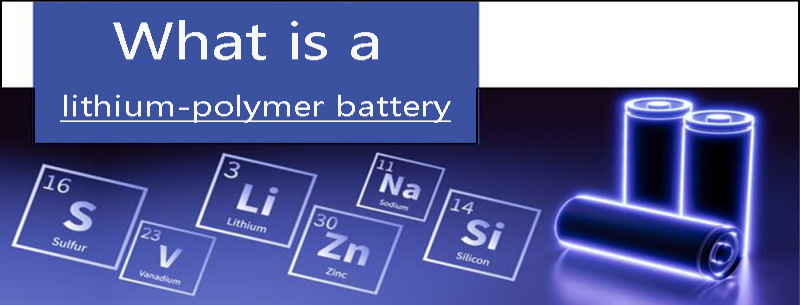
4. What are the pros and cons of lithium-polymer battery?
Just like the lithium-ion battery, the lithium-polymer battery also has some advantages as well as some disadvantages.
① Pros
The advantages of lithium-polymer battery are as follows:
High energy density
The lithium-polymer battery has twice the energy density as compared to other types of batteries. Thus, it can provide higher currents for many devices that require it.
No memory effect
The lithium-polymer battery does not have any memory effect. Therefore, charging as used will not affect the the battery capacity.
Good safety performance
The polymer lithium battery adopts aluminum-plastic flexible packaging in structure, which is different from the metal shell of the liquid battery. In addition, due to the use of polymer materials, the battery will not fire or explode, and the battery itself has sufficient safety. In the event of a safety hazard, the liquid battery is easy to explode, while the polymer battery will only swell at most.
No maintenance
The lithium-polymer battery does not require as much maintenance as other batteries do. Therefore, such a battery is hassle-free and quite easy to use. Small internal resistance The lithium-polymer battery has special cells. The internal resistance of the cells is smaller than that of the general liquid battery, which greatly reduces the self-discharge rate of the battery. This polymer lithium battery that supports a large discharge current is an ideal choice for remote control models, becoming the most promising product to replace NiMH batteries.
Better discharge characteristics
Lithium-polymer batteries use gel electrolytes, which have smoother discharge characteristics and higher discharge platforms than liquid electrolytes.
More flexible
The lithium-polymer battery can be made into different shapes and sizes according to different needs.
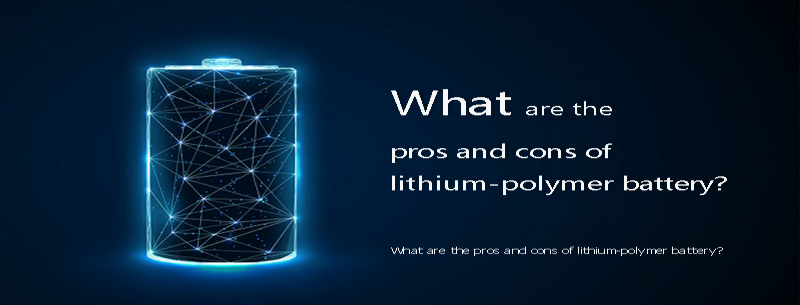
② Cons
Just like the lithium-polymer battery has several advantages, it also has a few disadvantages.
Overheating
The lithium-polymer battery can easily overheat and get destroyed especially by high voltages.
Fragile
This battery is fragile and requires a circuit for protection to increase safe operation. Overcharge or overdischarge will damage the reversibility of the chemical substances inside the battery, which will seriously affect its performance.
Safety mechanisms required
The lithium-polymer battery also needs some sort of safety mechanism to reduce internal pressure and voltage. The downside is that it increases the weight of the battery.
Poor versatility
Since polymer lithium batteries can add or reduce the thickness of cells according to practical needs, their versatility is poor, which is also the disadvantage of sensitive planning. Expensive It is quite expensive to make these batteries compared to other types.
5. How long does lithium-polymer battery last? Do lithium-polymer batteries last longer than lithium-ion?
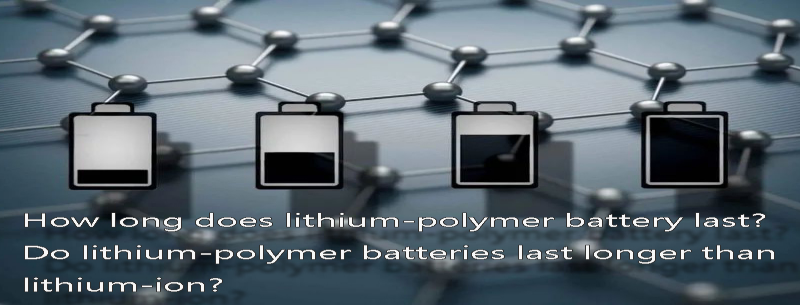
When comparing the performance of the two, it necessarily involved in the battery life of lithium polymer battery vs lithium ion, which serves as an important link of the comparison. The lithium-polymer battery has a good lifespan. It lasts from approximately 900 to 1500 charge cycles, from the time it is fully charged to empty and back to when it is full again.
When it comes to lithium-ion batteries, they last for about 4,000 cycles if charged and discharged on average once a day (4000/365≈10.96). Obviously, their lifespan is greater than that of lithium-polymer batteries. Lithium-ion batteries do not suffer from any memory effect, which is the loss in capacity when a battery is recharged without being fully depleted. Therefore, you can charge it when needed. Doing this would ultimately increase its overall lifespan as well.
6. Which is better, lithium polymer battery vs lithium ion?
When you compare lithium polymer battery vs lithium ion, you must want to figure out which is better, this is a competition about lithium polymer battery vs lithium ion. Both the lithium-polymer and lithium-ion batteries are great, modern battery technologies each having its pros and cons. The lithium-ion battery has a higher energy density and no memory effect as well as is cheaper than the lithium-polymer battery. However, the lithium-ion battery is not very stable, they are prone to explosion in high temperature and high pressure environments.
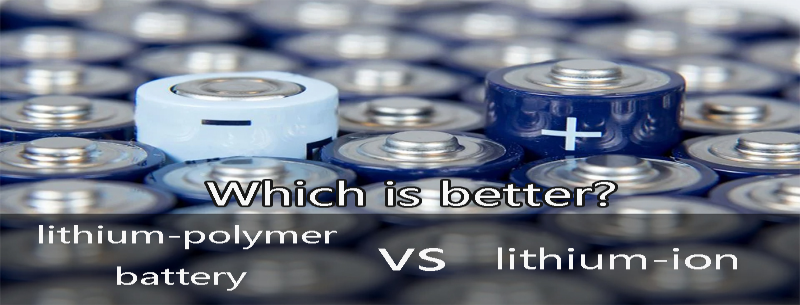
On the contrary, the lithium-polymer battery is flexible and lighter in weight as well. It also has a very low chance of leaking its electrolyte as it is solid, dry, and gelled. However, the lithium-polymer battery is more expensive and has a lower energy density and a lower lifespan than the lithium-ion battery. Moreover, with the advancement of technology, the use of gel electrolytes has basically solved the safety problem and improved the safety performance of lithium-ion batteries.
7. What’s the difference between lithium-ion and lithium-polymer batteries?
When it comes to lithium polymer battery vs lithium ion, there are many differences between lithium-ion and lithium-polymer batteries.
① Electrolyte material
This is one of the major differences between the two batteries. Lithium-ion battery uses a liquid/gel electrolyte between the anode and cathode while the lithium-polymer battery uses polymer electrolyte (solid or colloidal) and organic electrolyte.
② Shape
The lithium-polymer battery can be made thinning, arbitrary area and arbitrary shape, because its electrolyte can be solid or colloidal instead of liquid, and lithium batteries use electrolyte, which requires a solid shell as a secondary package to accommodate the electrolyte . Therefore, this also adds a part of the weight to the lithium battery.
③ Power
When it comes to producing high power, both the batteries are very efficient in it. However, the lithium-ion battery is better and more efficient and widespread at producing higher power than the lithium-polymer battery. The reason for this is that the lithium-ion battery has higher power levels.
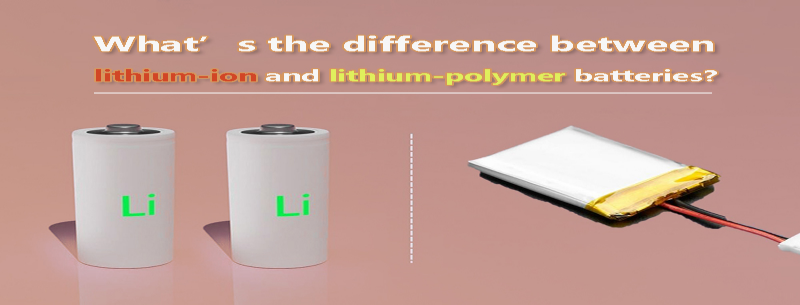
④ Cost
When we talk about pricing of lithium polymer battery vs lithium ion, the lithium-polymer battery is quite expensive compared to the lithium-ion battery. The lithium-ion battery costs around $30 to $650 per piece depending on the quality and voltage of the battery. On the other hand, the lithium-polymer battery costs around $100 to $3300 per piece. Therefore, the lithium-ion battery is much more cost-efficient.
⑤ Capacity
The capacity of lithium-polymer batteries has not been effectively improved, and it has been reduced compared with standard capacity lithium batteries.
⑥ Applications
Lithium-ion batteries are used in UPS, electric vehicles, boat, solar energy storage, surveillance or alarm systems, and portable power packs. The battery is also used in aquarium food devices, laser pointers, digital cameras, blood pressure devices, insulin pumps, data collectors, electricity meters, and so on. Lithium-polymer batteries are used in products such as car alarm systems, keys, lights, stereos, etc. It is also used in portable devices like phones and Bluetooth headsets.
8. Which one to choose in different application scenarios lithium-polymer battery or lithium-ion?
In comparing lithium polymer battery vs lithium ion, the type of battery you want to choose depends upon different kinds of application scenarios and also upon the preference of the user. If you want a battery having enough power supply, then the lithium-polymer battery would be ideal for you. However, if you want power for a longer duration, then the lithium-ion battery with better battery cycle would be your perfect choice.